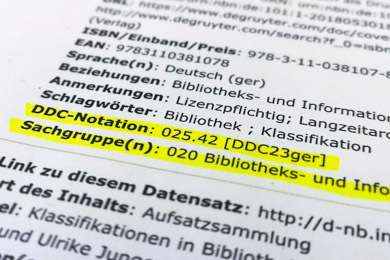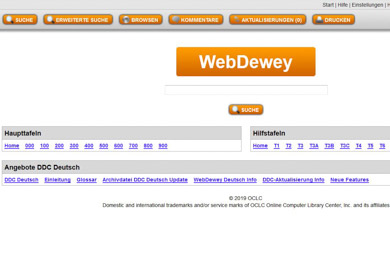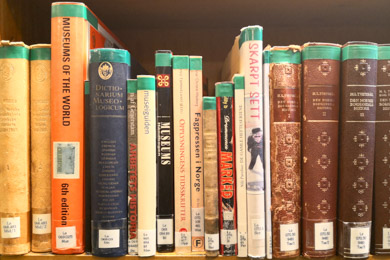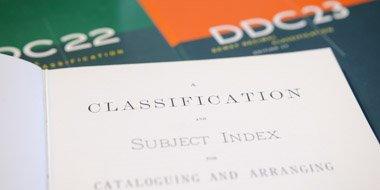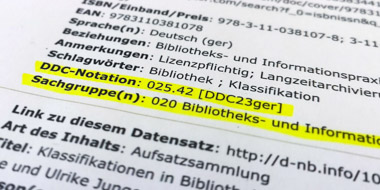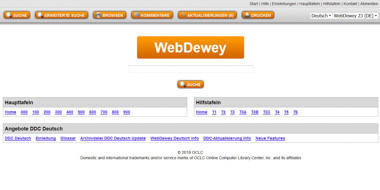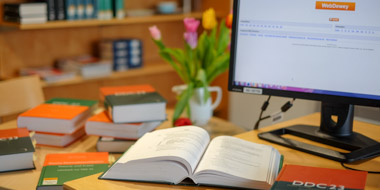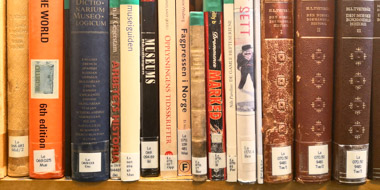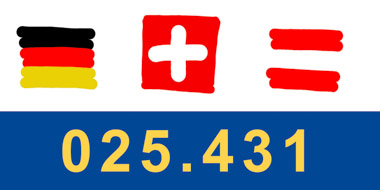Here you will find some useful information about DDC Deutsch and Dewey Decimal Classification (DDC), the most extensively used universal classification system worldwide.
Dewey Decimal Classification is a knowledge organisation system used in many libraries across the world. First published in 1876 in the format developed by Melvil Dewey, after whom it was named, it is constantly being developed and the content modified to make sure it moves with the times.
Unlike in the USA, its country of origin, where the majority of libraries traditionally use “Dewey” as a shelving system, we mainly use DDC for catalogue searches.
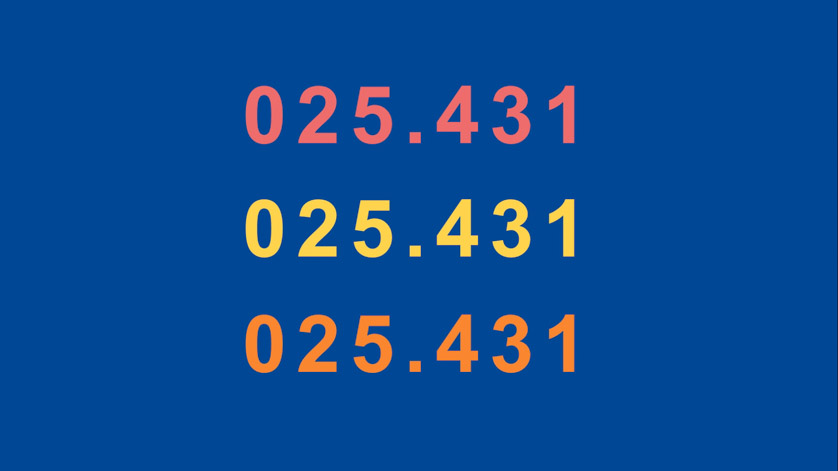 Graphic: Tina Mengel
Graphic: Tina Mengel


